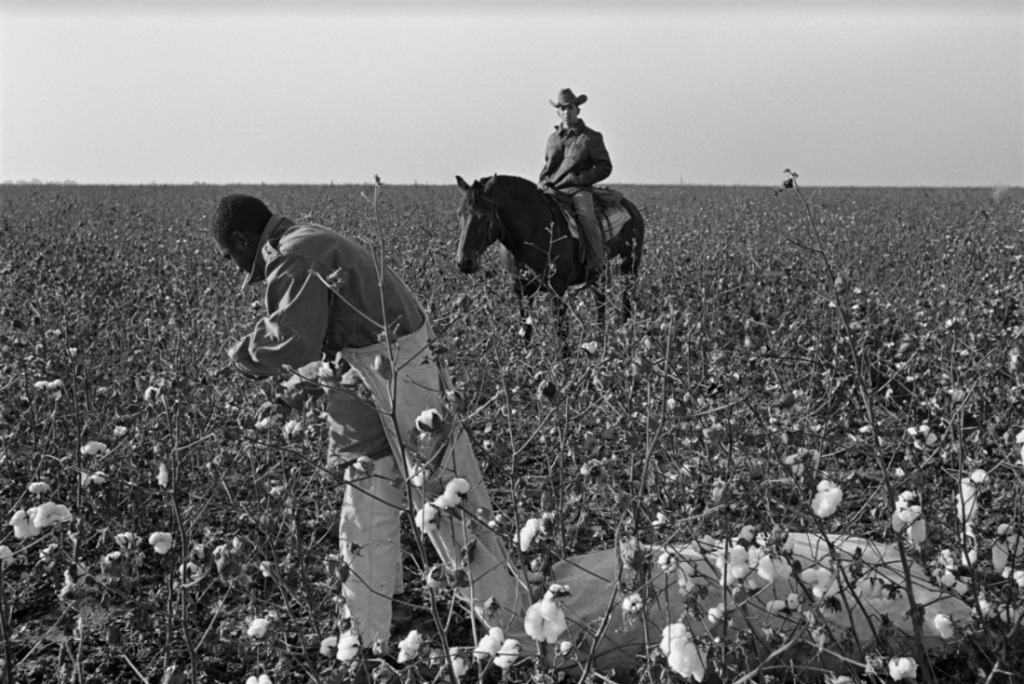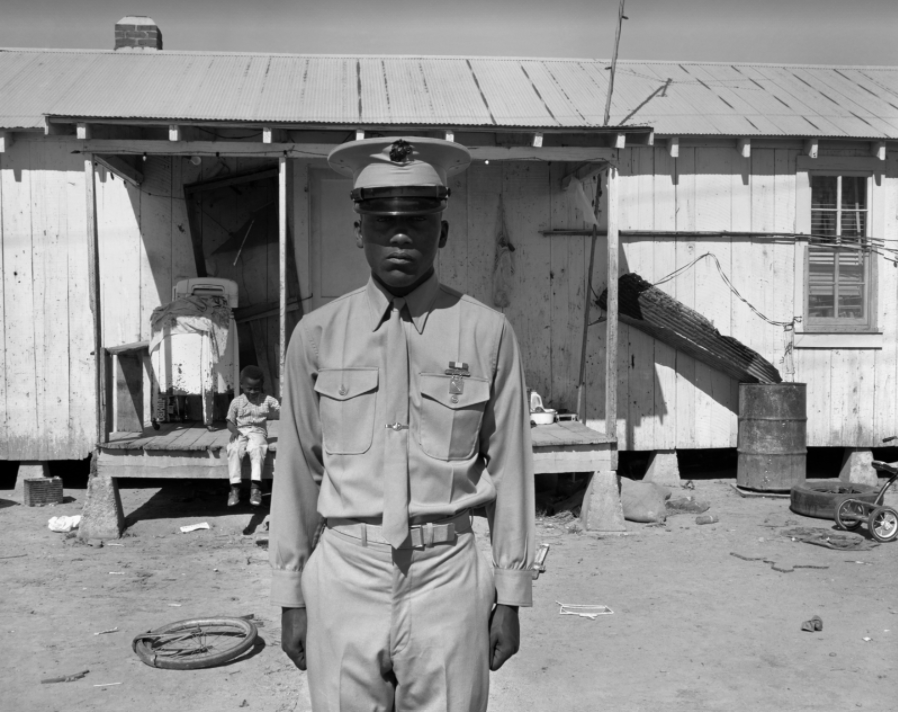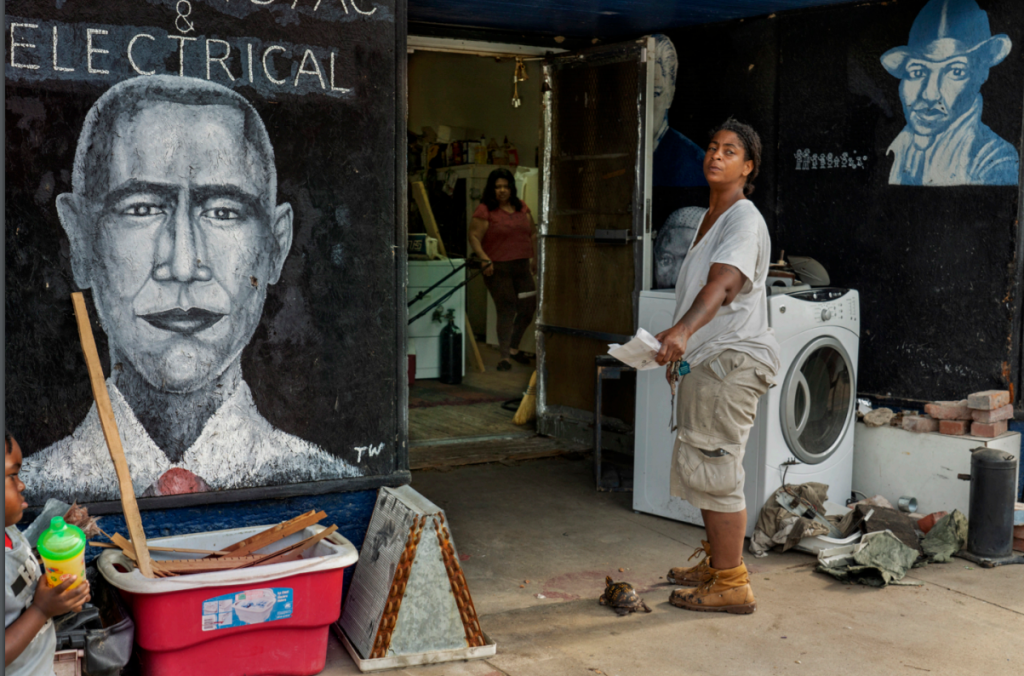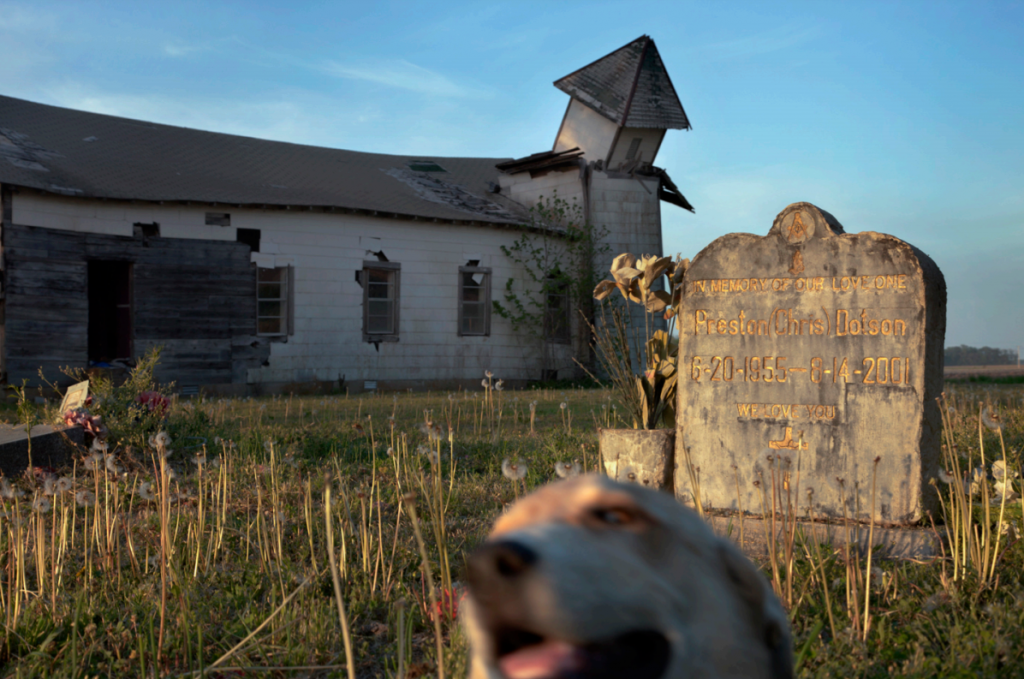After finishing college and protesting the Vietnam War, in 1968 Eugene Richards joined VISTA—Volunteers in Service to America—a government anti-poverty organization. After working first as a social worker, then reporter, he began to photograph extensively in the Arkansas Delta. He reported in depth on the lives of the residents of this impoverished, still racially-divided region. Richards began photographing the Black sharecropper families of the Delta, who were the poorest of the poor, largely cut off from the rest of society, sick, and malnourished. Hunger and untreated illness were the major concerns. After leaving VISTA and helping found a community newspaper, Many Voices, he photographed protest marches, the increasing violence, the lives of inmates in Arkansas’ notorious prisons.
In 2010, 40 years after his initial visit to the Delta, National Geographic sent him there on assignment. He struggled, though, to find the places he had known so well. The segregated sharecropping culture that once typified the region had been all but eclipsed by industrial farming. There were tractors, where once there were people working in the fields by hand. People had to move elsewhere in search of better lives.
The last time Richards returned to the area was in 2019. He was struck by an overwhelming sense of absence. No men and women picking cotton. The sharecropper shacks that had been there 50 years prior had vanished. Once there had been four or five of them every couple of miles — tin roofs, plastic sheeting over the windows, front yards rutted with tire tracks, littered with rusted-out cars, bed springs, things that once meant a lot to someone, but didn’t any longer.




